Tim Stelzig, federal regulatory attorney at GCI
---
Arctic issues have remained top of mind for our country the past year and a half that the U.S. has chaired the Arctic Council. The expanding interest in the Arctic creates new opportunities for collaboration, which is why I and others at GCI have devoted so much time to being part of these conversations. Given the large challenges we face in the Arctic, we must work together. A lot has happened during the past year and a half – too much to recount. So here is a sample of what has happened in just the past two weeks, some of which I was fortunate enough to participate in. Over the next six months and beyond, we can expect to see much, much more.
Just last week, The Arctic Council’s Senior Arctic Officials (SAOs) and indigenous Permanent Participant organizations (PPs) met in Portland, Maine to discuss the Council’s ongoing work and future plans to address environmental issues and promote sustainable development in the Arctic. Delegates also heard updates from the Council’s Working Groups, Task Forces and others on a number of key initiatives, including black carbon and methane mitigation and telecom infrastructure. It was also the first opportunity for delegates to discuss the proposed program for the upcoming Finnish Arctic Council Chairmanship (2017-2019), which addresses the need for continued work on climate change and sustainable development.
The Alaska and Maine Arctic Council Host Committees sponsored a number of side events in Portland. At the Maine Arctic Forum, for example, we heard from Maine Senator Angus King, who has worked closely with Senator Murkowski on the U.S. Senate Arctic Caucus. Craig Fleener, now working in Governor Walker’s administration, explained how the U.S. is an Arctic nation and helped attendees from the Lower 48 visualize what it is actually like to live in the Arctic. Ambassador Balton explained the workings of the Arctic Council in a way that captivated the audience. Many others also gave excellent presentations.
The Maine-Alaska Arctic Roundtable, moderated by Nils Andreassen of the Institute of the North, was another notable event and focused on potential areas of cooperation between the two states. Congressman Don Young was one of several at the table who stressed how important broadband is to the people who live in the Arctic. I stressed the need for sustainable economic development in collaboration with local residents as a way to encourage broadband deployment in the Arctic.
Meanwhile, back home in Alaska at the fifth annual Arctic Ambitions conference in Anchorage, GCI’s General Counsel Tina Pidgeon shared an update of our continued progress expanding broadband throughout Alaska's Arctic, continuing our string of on-time project delivery that's scheduled to bring high-speed broadband to our 84th rural community next year.
In September, the White House held the inaugural Arctic Science Ministerial, a year after President Barack Obama became the first sitting U.S. president to travel to the Arctic. The Arctic Science Ministerial convened global Arctic leaders to discuss advancing scientific understanding of the Arctic and its global implications. Ambassador Mark Brzezinski, executive director of the Arctic Executive Steering Committee and Dr. John Holdren, chair of that Committee, jointly published an article in The Huffington Post about the Arctic Science Ministerial that points out that convening Arctic scientists and policymakers is a good opportunity to bring science, technology, engineering and mathematics education to the mindsets of students and educators. This is because STEM education is most effective when structured around real-world issues that people know are affecting their lives. Many Alaskan educators are ahead of the curve and already incorporating Arctic issues into their science curriculum. We plan to highlight some of their work in future blog posts.
The Arctic Science Ministerial included science ministers from the eight Arctic nations in addition to representatives from 15 foreign governments with active Arctic research initiatives. Arctic scientists and policymakers met to influence political and international decisions regarding future commercial activity in the region. Five indigenous peoples’ organizations from the Arctic were also in attendance to share first-hand accounts of shrinking sea ice and coastal erosion. A pre-ministerial meeting helped ensure that the concerns of Alaska Natives and other indigenous peoples were accurately addressed in the Ministerial. Meetings combining knowledge and research from scientists and indigenous peoples show that cooperation is necessary for future Arctic sustainability. This combination of ancestral knowledge and scientific research helps contribute to a holistic understanding of the changes currently taking place in the Arctic.
The Arctic Economic Council also held an event alongside the Arctic Science Ministerial at the Finnish Embassy in Washington, D.C. The AEC conference explored how technology can build bridges between Arctic research communities and business communities. The Finnish Ambassador and her staff were welcoming hosts, and Tara Sweeney, President of the AEC, brought a number of interesting speakers to the table. We all have a lot to learn from each other, a lesson that applies in a tangible way where data and analyses collected by one are of value to multiple Arctic stakeholders.
At GCI, we’re thrilled to see the shift in attention to the Arctic as we know it is a critically important region with a lot of promise, but also many challenges. There has been progress, but there is still a lot of work to be done. In light of all that remains to accomplish, we are pleased to see a building consensus on the Task Force on Telecommunications Infrastructure in the Arctic that the work being done by that Task Force should continue.
We look forward to seeing what is in store for the last six months of the U.S. Chairmanship and for all that will follow during the Finnish Chairmanship.




